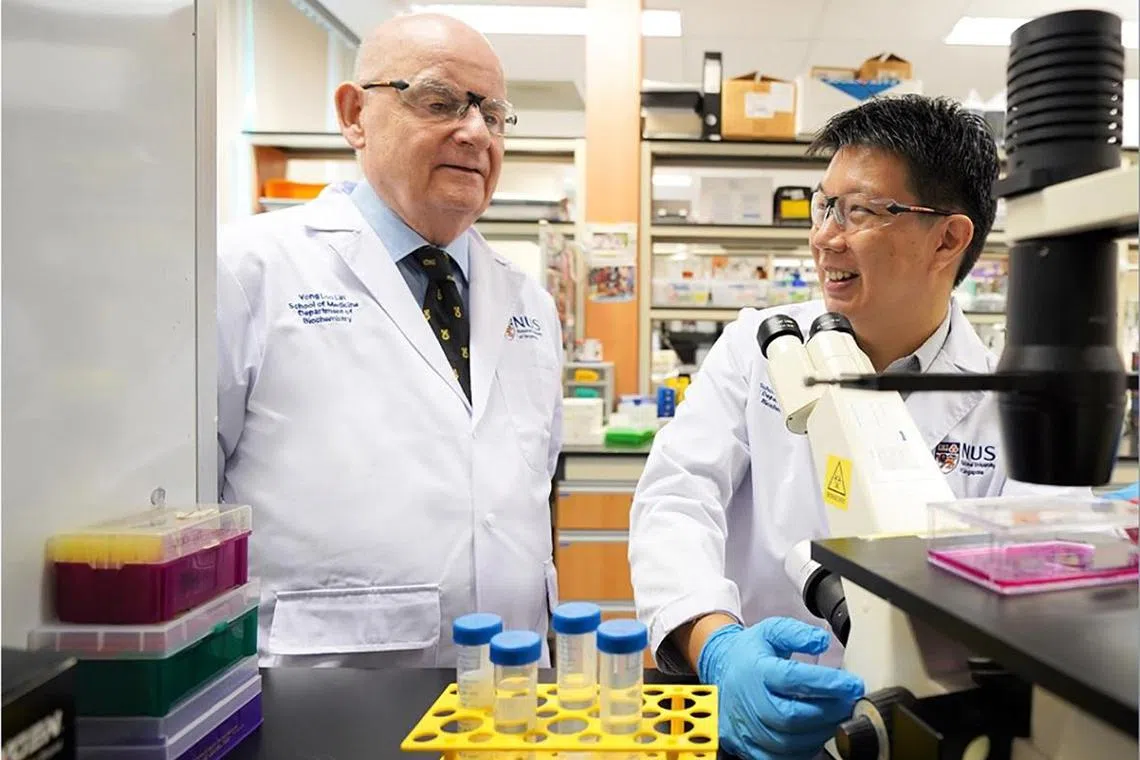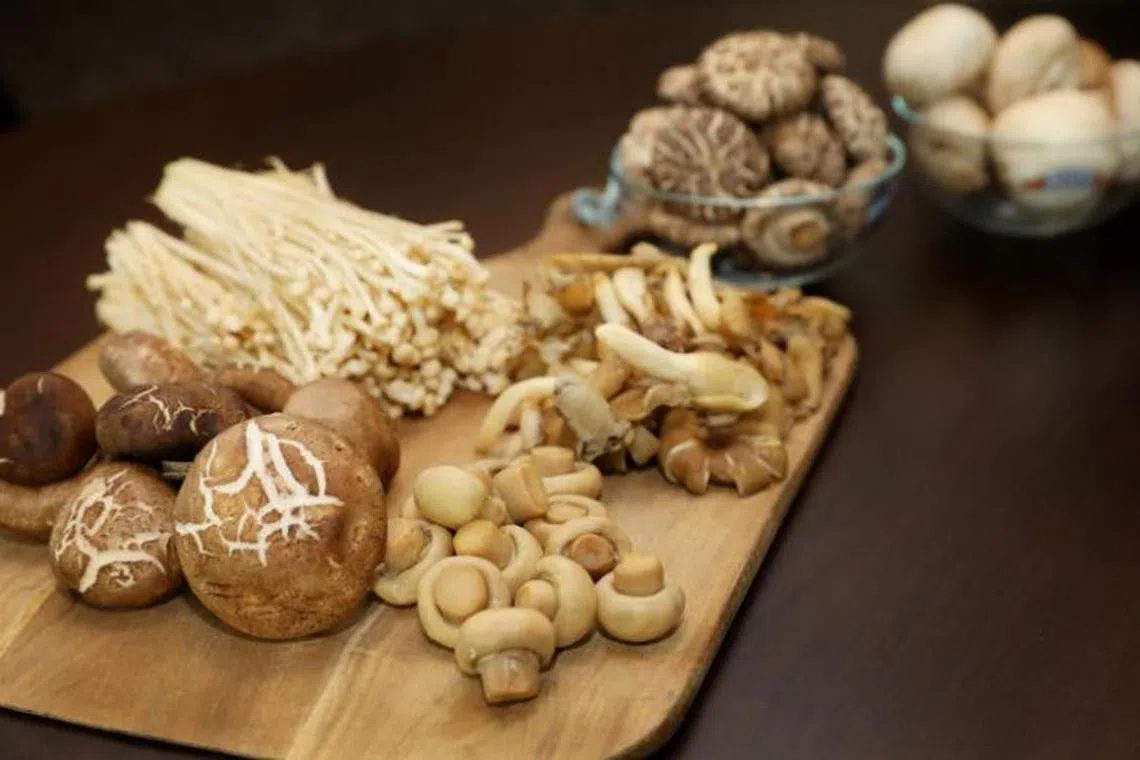S’pore scientists examine whether mushroom compound can help prevent, delay mental decline
Sign up now: Get ST's newsletters delivered to your inbox

Professor Barry Halliwell (left) and Dr Irwin Cheah (right) from NUS are collaborating with the National University Health System.
PHOTO: NUS
SINGAPORE - A group of Singapore scientists has restarted a clinical trial to look at whether supplementing one’s diet with ergothioneine – a compound found mainly in mushrooms – can help prevent or delay cognitive impairment and dementia.
The trial comes after they found that low levels of ergothioneine in the blood correlate with an increased risk of developing cognitive issues.
The scientists come from two teams – one is led by Professor Barry Halliwell from the Department of Biochemistry at the National University of Singapore’s (NUS) Yong Loo Lin School of Medicine and the other by Associate Professor Christopher Chen and Dr Mitchell Lai from the Memory, Ageing and Cognition Centre, which comes under the National University Health System.
They had followed 470 senior subjects for five years, and found that the participants with the lowest blood levels of ergothioneine declined faster cognitively than those with higher levels of the compound.
Before this study, it was known only that individuals with lower levels of ergothioneine had poorer cognitive performance.
“Ergothioneine levels in people who were cognitively healthy are a predictor of who’s going to develop cognitive impairment,” said Prof Halliwell.
“In other words, if you were healthy, and your level was low, your risk of developing cognitive impairment was much, much greater.”
The findings point to the possibility of using a simple blood test to detect ergothioneine levels to identify senior people at risk of developing cognitive impairment and dementia, he said.
Dr Irwin Cheah, a senior research fellow from the NUS Department of Biochemistry, who is part of the team, said the researchers aim to recruit 106 subjects over the age of 60 and with mild cognitive impairment to study the impact of ergothioneine supplementation. They have signed up 20 people so far.
Prof Halliwell said his team had started the ergothioneine study more than two years ago, but it was halted due to Covid-19. As some participants have since dropped out, the recruitment process started anew.
Participants will get 25 milligrams of ergothioneine three times a week or a placebo, said Dr Cheah. Five mg of ergothioneine is roughly the amount you can get from eating a small bowl of fresh mushrooms, he said.
He added that they have previously measured the levels of ergothioneine in a range of canned mushroom soups, and found that those soups contain very low levels of ergothioneine, likely because the mushroom content is not very high.
Participants in the study will undergo cognitive tests, blood tests and possibly even brain scans to check for changes in the brain.

Researchers from NUS found that participants who ate more than two servings of mushrooms a week were 57 per cent less likely to have mild cognitive impairment.
ST PHOTO: GAVIN FOO
Ergothioneine cannot be made in the body, and is derived from dietary sources, mainly from mushrooms. A variety of foods, including garlic, tempeh and pepper, contain the compound, but in smaller amounts.
Researchers here have already found that increased consumption of mushrooms, such as golden, oyster, shiitake and white button mushrooms, correlates with a reduced risk of mild cognitive impairment in senior Singaporeans.
Prof Halliwell started researching ergothioneine years ago. His earlier work demonstrated the potent antioxidant properties of ergothioneine and, later, its ability to protect cells from a range of different forms of stress and toxins.
In 2016, his team showed that people with mild cognitive impairment had lower ergothioneine blood levels, but that was in a small group of 25 subjects. This was later verified in a much larger group.
Having low levels of ergothioneine is also associated with a number of other age-related diseases such as frailty, cardiovascular disease and macular degeneration, so the compound may have a more general role in maintaining health, said Prof Halliwell.
In the near future, the team plans to apply for a grant to look at the effect of ergothioneine on different diseases, he said.
“It’s actually possible that ergothioneine is an undiscovered vitamin,” he added.



